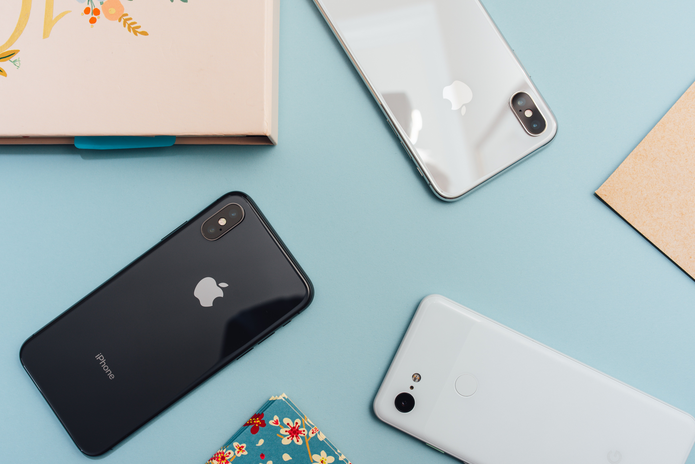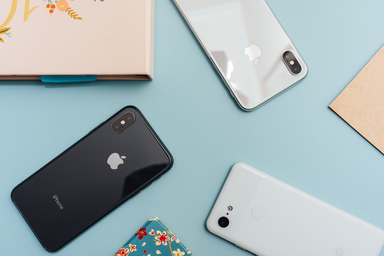For most college students, social media plays a major role in daily life. I am personally an avid (obsessive?) consumer of Twitter, Facebook, Instagram, Buzzfeed, Pinterest, and various other media channels. I click on memes, favorite tweets, like pictures, and most importantly, read several articles throughout my week.
Recently, I’ve noticed a trend in topic across several blogs and sites: body positivity. It seems like every website wants to talk about how to love yourself, love food, and love your body, free of guilt.
These articles are fantastic. They empower women to feel good about themselves. They inspire us to think positively. They provide excellent tips and case studies of people who have overcome body image struggles. However, each post seems to leave out one thing — body positivity is HARD.
Why body positivity is so hard can be difficult to pinpoint. Loving your body should be easy — it’s a part of you, and it does so many amazing things. This logic, unfortunately, only sounds good in theory to so many women. My own experiences, interactions with friends, and observations of other women my age first clued me in to how often most girls criticize their own bodies, and struggle to wholly accept themselves.
The statistics, however, are even more alarming than my own casual observation. According to DoSomething.org, “58% of college-aged girls feel pressured to be a certain weight.” If that percentage isn’t alarming enough, the webpage also asserts, “approximately 91% of women are unhappy with their bodies and resort to dieting to achieve their ideal body shape.”
But why? Women come in all shapes and sizes, so why has it become so difficult to accept our own unique shape and size? Why do most of us aspire to instead look like “that girl”, or worse, “that model”?
Body positivity is hard because of the mixed messages we receive from the media. Diet ads tell us to loose the extra five pounds with pills and programs. We need to work hard. We’ll feel better about ourselves if we eat kale because female self-esteem is dependent on our weight. We just need to learn self-control. Meanwhile, many chocolate ads (and other kinds of desert) tend to focus on an “indulgence” theme. We deserve to eat chocolate. We’ve had a hard week. We probably went to the gym. We earned it.
Both of these ad types discourage females from acting out of their own desires. They force women to think about their body weight rather than hunger or pleasure before consuming food or participating in activities. Apparently, girls can’t go to the gym because they need to blow off some steam. Girls don’t eat chocolate because it tastes good. Our actions are defined by self-control or indulgence. Body positivity is hard because the media continuously tells us how to eat and “cheat” in order to maintain a certain, thin lifestyle.
Yet somehow men are never featured in commercials, sexily unwrapping a chocolate bar or laughing into their salads. Men don’t have to restrict, control, deserve, earn, or indulge in food. Body positivity is hard because unlike men, women are often told, either explicitly or implicitly, that they are defined by their bodies.
Body positivity is hard because we are constantly exposed to skinny, beautiful celebrities via television, ads, and social media. Now, more than ever, we have “unscripted” access to their lives with apps like Instagram, Twitter, and Snapchat. Kylie Jenner may share videos of herself downing fatty foods on Snapchat, while posting photos of her toned body on Instagram. Fans everywhere admire her ability to look so good yet eat so unhealthy. What social media doesn’t show are the hours of workouts with personal trainers. The hours that we, as college students, do not have the time (or desire) for. Social media also doesn’t show the Photoshop or the perfect lighting and posing behind each picture. These images and bodies are simply unrealistic for most people. Body positivity is hard because women are told that the “ideal body” is easy, effortless, and attainable when often times it is not.
So many external influences place pressure on women. For this reason, body positivity has become extremely challenging. There are more articles about how to lose weight, how to diet, how to make a detox drink, than articles telling us why loving our bodies is important. I am grateful for the upsurge in articles dedicated to body positivity. Maybe one day, the positive posts will drown out the negative ones, and females will spend more time feeling empowered than guilty.
Until then, I think it’s important to remind anyone struggling with dieting, weight, or self-love that body positivity is a process. It’s hard, for so many reasons. Unfortunately, becoming body positive may not feel as easy as several online articles make it seem.
Ignore damaging media influences. Keep an optimistic outlook. Allow yourself to have bad days. Allow yourself to have good days. When a negative thought pops into your head, think positively. Name a few aspects of your body that you love instead of focusing on what you don’t. Most importantly, don’t become discouraged if you read a post on body positivity and think, “I just don’t see myself that way”, because you’re not alone. You don’t have to feel badly about the fact that you sometimes feel badly about your body. Begin the process of change that allows you to embrace yourself. Body positivity is hard, but in the end, it’s worth the struggle.
Photo Credit:
Sources:
https://www.dosomething.org/us/facts/11-facts-about-body-image


